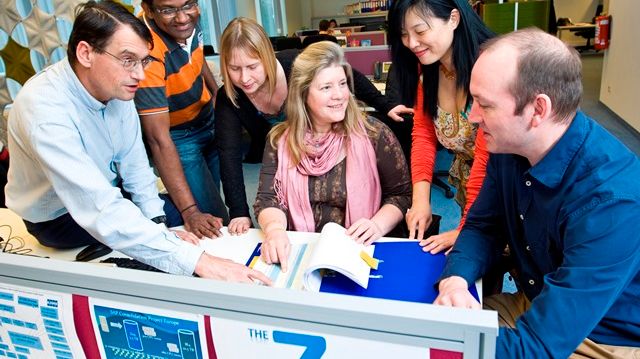Europa, ¿un lugar privilegiado para vivir y trabajar?
La encuesta europea sobre calidad de vida de Eurofound proporciona una visión única acerca de la calidad de vida actual de los europeos.
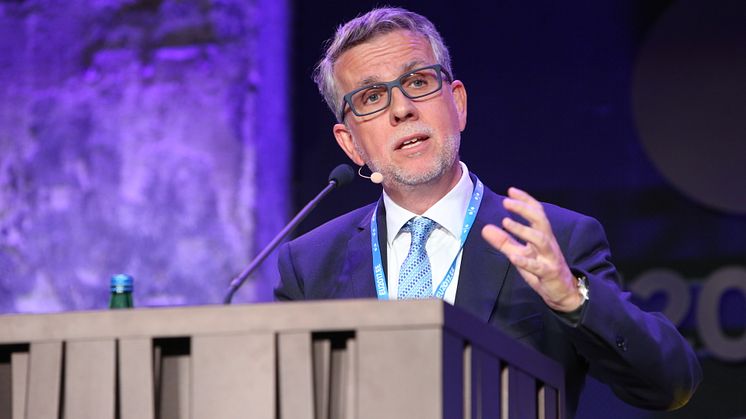
La encuesta europea sobre calidad de vida de Eurofound proporciona una visión única acerca de la calidad de vida actual de los europeos.

Die von Eurofound durchgeführte Europäische Erhebung zur Lebensqualität bietet einzigartige Einblicke in die aktuelle Lebensqualität der Europäer.

Les résultats de la dernière enquête européenne sur la qualité de vie font état de progrès généraux dans les domaines de la qualité de la vie, de la qualité de la société et de la qualité des services publics.

The results from the most recent European Quality of Life Survey show overall progress in the areas of quality of life, quality of society and quality of public services. We have seen improvements for many, although from low points following the economic crisis.

Results from Eurofound’s 2016 European Quality of Life Survey (EQLS) show general progress in the three key areas - quality of life, quality of society and quality of public services. Nevertheless, there remain signs of persisting inequalities and rising uncertainties in some areas with particular differences apparent between countries, gender, age and income groups.

Eurofound’s new report Care homes for older Europeans: Public, private and not-for-profit providers is the most comprehensive exercise to date to gather all available data across Member States. The report provides a picture of the quality, accessibility and efficiency of services.
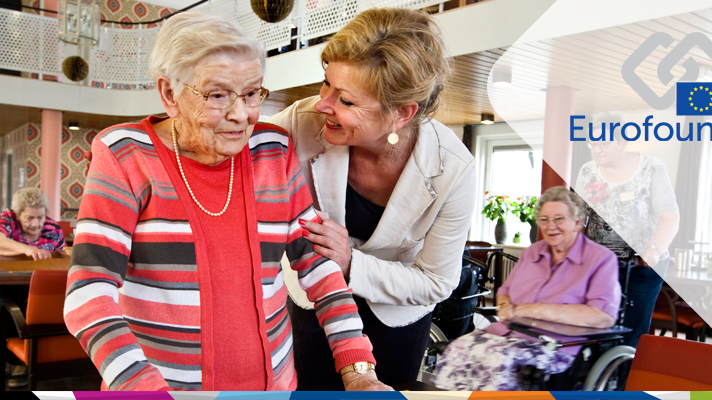
Eurofound will launch its new report on care homes for older Europeans at a special event on Tuesday 28 November 2017 in Europe House, Dublin.
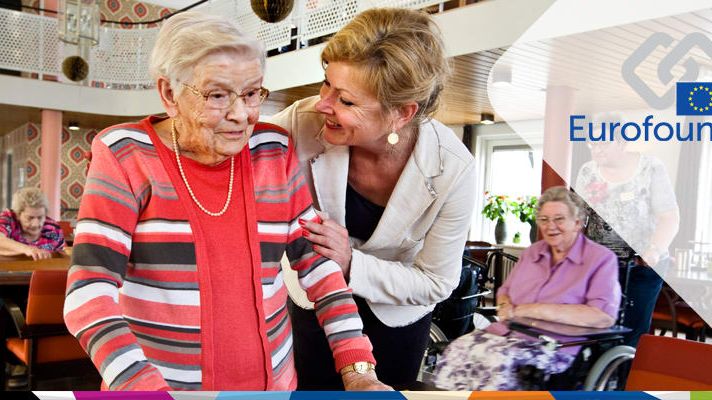
The Foundation Forum is Eurofound’s flagship event, aimed at reaching high-level policymakers in the field of social, employment and work-related policies. The event takes place in Dublin on 14-15 November 2017.
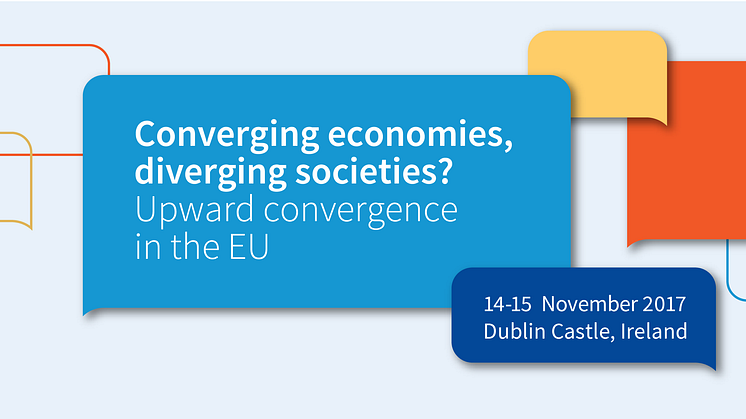
Friday 3 November is European Equal Pay Day. In the following blog piece Christine Aumayr-Pintar looks at the issue of pay inequality, contending that far from being a fair weather issue, addressing pay gaps should be an ongoing priority for Europe.

Unemployment in the EU continues to fall, however more than one in four of the EU’s working-age population are economically inactive; meaning they are not working, and are not seeking work or are not available for work.
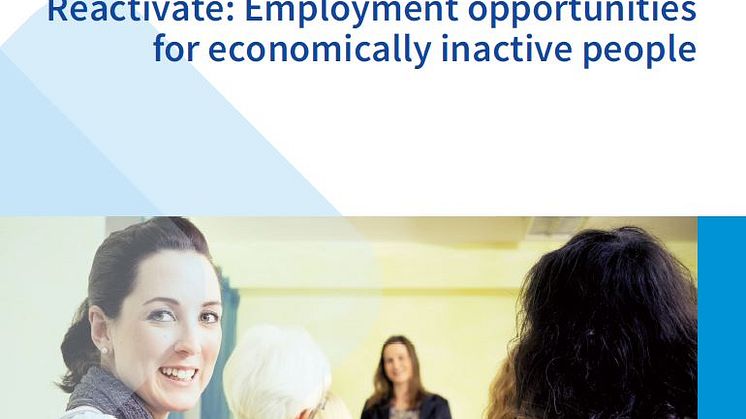
In this new blog piece Mathijn Wilkens looks at the multi-faceted nature of self-employment in Europe – from the entrepreneurial independent self-employed, to those that find themselves in a more vulnerable position.

20 October is European Statistics Day, an initiative of the European Statistical Advisory Committee (ESAC) and with the support of the members of the European Statistical System and the European System of Central Banks.

In this blog piece, originally published in Social Europe, Eurofound Research Manager Daphne Nathalie Ahrendt looks at the increase in the number of workers that are at risk of poverty and are materially deprived following the 2008 economic and financial crisis, and evaluates the potential social ramifications for Europe.
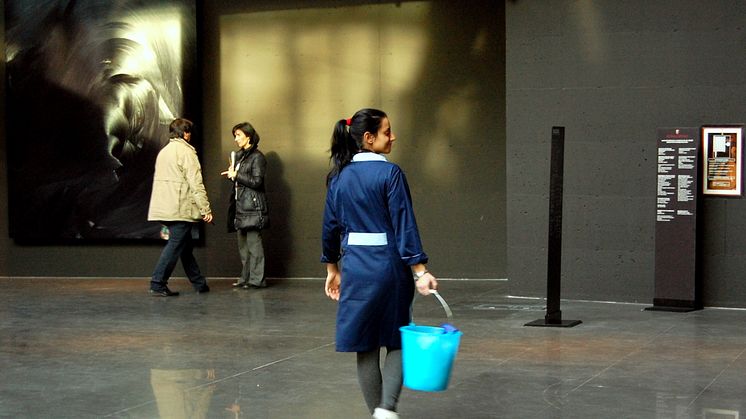
Die Kategorie der NEET ist breit angelegt und deckt eine heterogene Bevölkerung ab. Um die verschiedenen Merkmale und Bedürfnisse der Untergruppen besser verstehen zu können und maßgeschneiderte wirksame politische Strategien zur Wiedereingliederung in den Arbeitsmarkt oder das Bildungswesen entwickeln zu können, ist es wichtig, eine Aufschlüsselung in Untergruppen vorzunehmen.
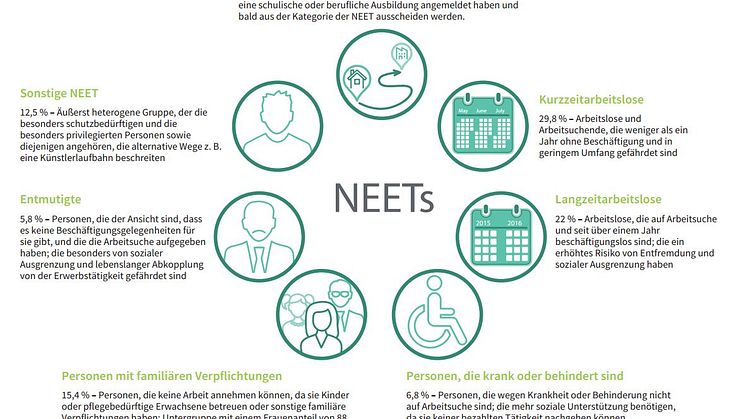
NEETs is a broad category encompassing a heterogeneous population. Disentangling the subgroups within it is essential for a better understanding of their different characteristics and needs, and for tailoring effective policies to reintegrate them into the labour market or education.
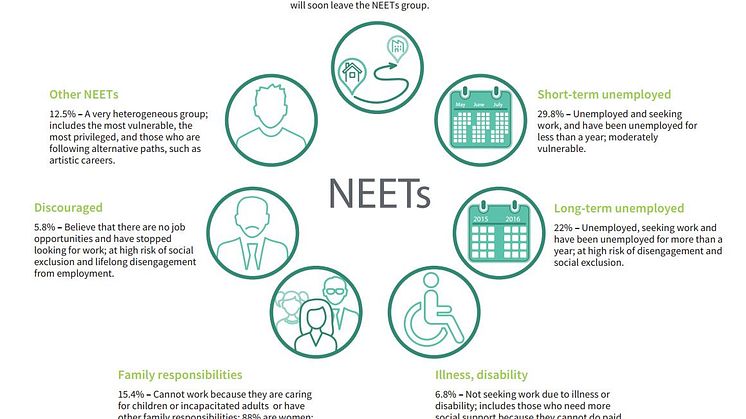
La vaste catégorie des NEET réunit une population hétérogène. Il est essentiel de distinguer des sous-groupes pour mieux comprendre leurs différents besoins et caractéristiques, et pour élaborer des politiques adaptées et efficaces leur permettant de réintégrer le marché de l’emploi ou le système éducatif.
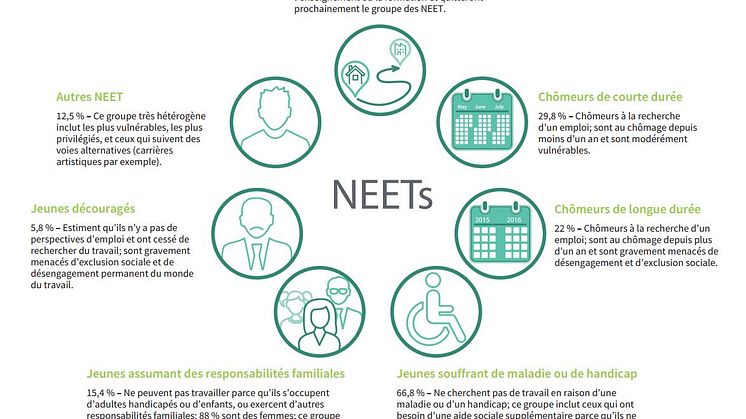
This graph highlights the importance of education, indicating that in all EU countries except Finland, the at-risk-of-poverty rate is highest among people with the lowest level of education.
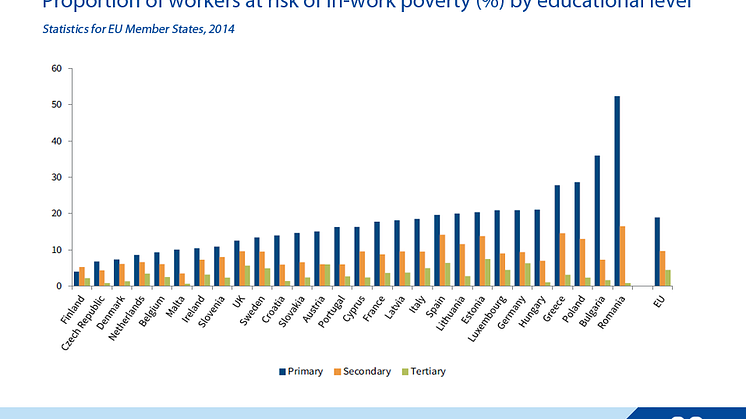
81% of workers say their working hours fit well, or very well, with their private life obligations. However men continue to have longer working hours (on average 6.5 hours per week more than women) and report more difficulties adapting working time to family life or other commitments.
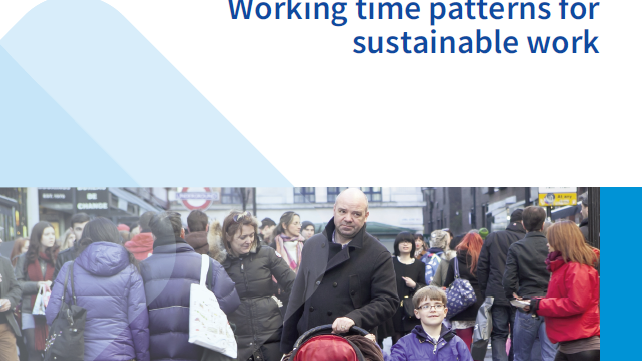
One in ten workers in the EU is at risk of poverty, and 13% of workers are materially deprived and cannot afford basic household goods. Despite the fact that levels of in-work poverty have increased in Europe during the financial crisis, most Member States do not specifically address in-work poverty.
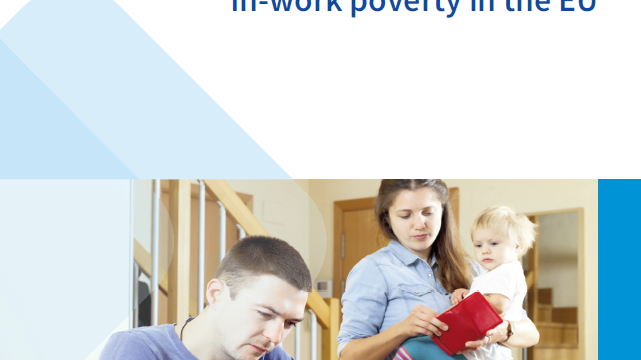
Eurofound has launched a stakeholder survey in an effort to improve the way in which it reports on collective bargaining, and to transition from an initial focus on wage-bargaining outcomes to cover collective bargaining in a more holistic way,
